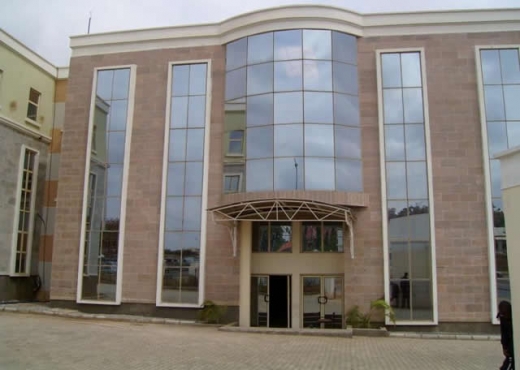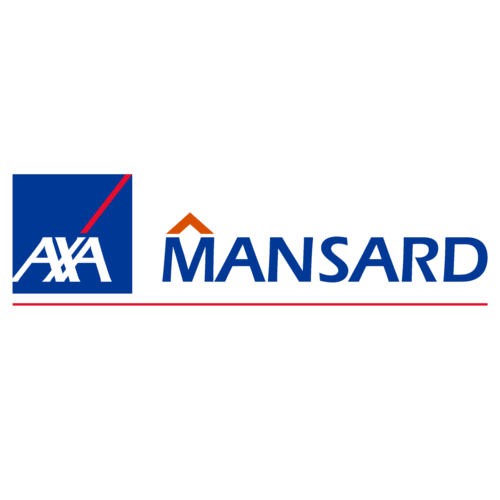Economy
5 Insurance Firms in Trouble over Huge Management Expenses, Shareholders React

By Modupe Gbadeyanka
The inability to curtail their management expenses which surpasses their premium income may lead at least five insurance companies operating in the country into trouble.
According to Leadership Newspaper, the industry regulator, the National Insurance Commission (NAICOM) is not happy with the development because it had been persuasive in its approach to insurance companies to cut down on their management expenses and if this act affects their solvency margin, which would make them deep hands into their shareholders’ funds to run the affairs of the respective firms, NAICOM would be left with no other option than to sanction the affected insurers.
According to data sourced from the umbrella body of operators, the Nigerian Insurers Association (NIA), NICON Insurance Company Limited, in its 2016 financial year, generated N92 million gross premium and spent N453.7 million, translating to 4.93 percent on management expenses, while Old Mutual Life Assurance Company Limited had N1.30 billion gross premium and spent N1.83 billion, representing 1.41 percent on management expenses.
SpringLife Assurance Plc, on its part, had N32 million premium income and spent N105.2 million on its management in the same financial year, UNIC Insurance Plc had N38.7 million gross premium income and spent N244.9 million with Investment & Allied Insurance Plc having N4.3 million gross premium and spent N169.4 million on its management.
The regulatory body had earlier placed the likes of International Energy Insurance(IEI) Plc, Industrial and General Insurance(IGI) Plc, among others, on financial restriction, after it was observed that the companies deep hands into their shareholders’ funds, and would not hesitate to do same to these five insurers, if found culpable.
NAICOM had earlier said, from the observation made on financial accounts submitted by some companies, those with huge expenditure profiles have been mandated not to spend beyond certain limits.
The decision, according to the Commissioner for Insurance, Mr Mohammed Kari, was taken to ensure companies do not spend unnecessarily to the extent that they would not be able to attend to claims settlement.
He expressed his sadness over the continuous increase in management expenses of underwriting firms across the country, stating that, this is affecting their ability to give good returns on investment to their investors.
When contacted by Leadership, spokesperson of NAICOM, Mr Rasaaq Salami, said the regulatory body was unhappy over the consistent increase in management expenses of the insurance industry, but that, the regulatory body has adopted a persuasive approach to tell them to cut down on their management expenses.
According to him, “Of course, it’s their business, but where we have issue is if it affects their solvency margin and they deep hands into their shareholders’ fund.
“But the board of these companies are expected to curtail the spending of their respective management to ensure that they continue to give values to their shareholders.”
He also said NAICOM was working to address the issue of overriding commission which is also part of the expenses.
Earlier, President of Progressive Shareholders Association of Nigeria (PSAN), Mr Boniface Okezie, said most insurance companies have yet to give good returns on investment to shareholders and investors, partly due to incurring huge management expenses as well as payment of huge fines to the regulatory bodies for default in the submission of their financial accounts.
He said shareholders react to the results a company releases, its dividend payout, its future prospect, saying insurance companies have failed in all these.
He believes insurance firms are the architect of their misfortune, saying, the money they use to pay fines and spend on management expenses on a yearly basis can comfortably give meaningful dividend to shareholders.
But the national coordinator, Independent Shareholders Association of Nigeria (ISAN), Sir Sunny Nwosu, felt otherwise, believing that the huge expenses are duly incurred in a bid to get good hands.
According to him, any company that wishes to attract best hands and retain them should be ready to pay.
He noted that the acclaimed huge management expenses is often incurred in a bid to engage capable personnel to drive affairs of organisations, stressing that good services are not cheap anywhere in the world and that organisations that want to be at the top should be ready to pay for the services of professionals.
“If you want the best you have to pay for it. If any regulator is coming to take up an executive job, in some of these companies, you need to know how much such person would earn and the salary becomes personal to that person.
“The regulator cannot just be in its cosy office and say management expenses are high. Go and ask for the regulators audited accounts, you would see certain things that you would not believe,” he said.
Meanwhile, most of the affected companies have been battling for survival owing to breakdown of corporate governance, while some are under regulatory intervention.
Economy
Fidson, Jaiz Bank, Others Keep NGX in Green Territory

By Dipo Olowookere
A further 0.99 per cent was gained by the Nigerian Exchange (NGX) Limited on Friday after a positive market breadth index supported by 53 price gainers, which outweighed 23 price losers, representing bullish investor sentiment.
During the trading day, the trio of Jaiz Bank, Fidson, and NPF Microfinance Bank chalked up 10.00 per cent each to sell for N11.00, N86.90, and N6.27, respectively, while Deap Capital appreciated by 9.96 per cent to N7.62, and Mutual Benefits increased by 9.94 per cent to N5.42.
Conversely, Secure Electronic Technology shed 10.00 per cent to trade at N1.62, Sovereign Trust Insurance slipped by 9.73 per cent to N2.32, Ellah Lakes declined by 7.91 per cent to N12.80, International Energy Insurance retreated by 5.56 per cent to N3.40, and ABC Transport moderated by 5.26 per cent to N9.00.
Data from Customs Street revealed that the insurance counter was up by 2.52 per cent, the industrial goods sector grew by 2.28 per cent, the banking space expanded by 1.43 per cent, the consumer goods index gained 1.23 per cent, and the energy industry rose by 0.05 per cent.
As a result, the All-Share Index (ASI) went up by 1,916.20 points to 194,989.77 points from 193,073.57 points, and the market capitalisation moved up by N1.230 trillion to N125.164 trillion from Thursday’s N123.934 trillion.
Yesterday, investors traded 820.5 million stocks valued at N28.3 billion in 63,507 deals compared with the 898.5 million stocks worth N38.5 billion executed in 61,953 deals, showing a jump in the number of deals by 2.51 per cent, and a shortfall in the trading volume and value by 8.68 per cent and 26.49 per cent apiece.
Closing the session as the most active equity was Mutual Benefits with 79.0 million units worth N427.1 million, Zenith Bank traded 44.0 million units valued at N3.8 billion, Chams exchanged 43.9 million units for N182.0 million, AIICO Insurance transacted 42.4 million units valued at N179.8 million, and Veritas Kapital sold 36.0 million units worth N90.6 million.
Economy
Brent Climbs to $71 on Fears of US Military Action Against Iran

By Adedapo Adesanya
The price of Brent crude oil grade went up by 0.14 per cent or 10 cents to $71.76 per barrel on Friday as investors worried about US military action against Iran, as President Donald Trump presses the Islamic Republic to halt nuclear weapon development.
However, the US West Texas Intermediate (WTI) crude oil grade finished at $66.39 a barrel after going down by 4 cents or 0.06 per cent.
The market awaited developments in the struggle between Iran and the US after President Trump said, “We have to make a meaningful deal, otherwise bad things happen,” referring to Iran.
The main concern for the crude oil market is that military activity will lead to a supply disruption if Iran decides to block shipping in the Strait of Hormuz. About 20 per cent of the world’s oil consumption passes through that waterway. Conflict in the area could limit oil entering the global market and push up prices.
There is the fear that a potential US military campaign in Iran could disrupt shipping in the Middle East are also adding upward pressure on supertanker rates.
Traders and investors ramped up purchases of call options on Brent crude in recent days, betting on higher prices.
Also supporting oil were reports of falling crude stocks and limited exports in the world’s biggest oil-producing and exporting countries. US crude inventories dropped by 9 million barrels as refining utilisation and exports climbed, an Energy Information Administration (EIA) report showed on Thursday.
Markets were also considering the impact of ample supply, with talks of the Organisation of the Petroleum Exporting Countries and its allies (OPEC+) leaning towards a resumption in oil output increases from April.
Eight OPEC+ producers – Saudi Arabia, Russia, the United Arab Emirates, Kazakhstan, Kuwait, Iraq, Algeria and Oman will meet on March 1. The eight members raised production quotas by about 2.9 million barrels per day from April to the end of December 2025, equating to about 3 per cent of global demand, and froze further planned increases for January through March 2026 because of seasonally weaker consumption.
Meanwhile, the oil market shrugged off a US Supreme Court decision ruling unconstitutional President Trump’s use of a law to levy tariffs in national emergencies.
Economy
PENGASSAN Kicks Against Tinubu’s Executive Order on Oil, Gas Revenues
By Adedapo Adesanya
The Petroleum and Natural Gas Senior Staff Association of Nigeria (PENGASSAN) has faulted the Executive Order signed by President Bola Tinubu on oil and gas revenues.
President Tinubu this week signed the Executive Order, titled The Upstream Petroleum Operations Cost Efficiency Incentives Order (2025), to safeguard and enhance oil and gas revenues for the Federation, curb wasteful spending, eliminate duplicative structures in the sector, and redirect resources for the benefit of the Nigerian people.
However, at a press conference in Abuja, PENGASSAN president, Mr Festus Osifo, argued that the tax incentives granted to oil companies by the President may not help in the reduction of cost if insecurity is not addressed.
“The Executive Order signed by the President yesterday is a direct attack on the provisions of the Petroleum Industry Act (PIA)—specifically Sections 8, 9, and 64,” Mr Osifo said.
“What the President has done is use an Executive Order to set aside a law of the Federal Republic of Nigeria. This is deeply troubling. What signal are we sending to investors and the international community?
“We are effectively telling them that the law of the land can be set aside by a simple executive decree. This is an aberration and should never have happened.”
According to a statement by the presidential spokesperson, Mr Bayo Onanuga, the President signed the EO in pursuance of Section 5 of the Constitution of the Federal Republic of Nigeria (as amended).
The Executive Order is anchored on Section 44(3) of the Constitution, which vests ownership, control, and derivative rights in all minerals, mineral oils, and natural gas in, under, and upon any land in Nigeria—including its territorial waters and Exclusive Economic Zone—in the Government of the Federation.
The directive seeks to restore the constitutional revenue entitlements of the federal, state, and local governments, which were removed in 2021 by the Petroleum Industry Act (PIA).
According to Mr Onanuga, the PIA created structural and legal channels through which substantial Federation revenues are lost via deductions, sundry charges, and fees.
Under the current PIA framework, NNPC Limited retains 30 per cent of the Federation’s oil revenues as a management fee on Profit Oil and Profit Gas derived from Production Sharing Contracts, Profit Sharing Contracts, and Risk Service Contracts. Additionally, the company retains 20 per cent of its profits for working capital and future investments.
The federal government considers the additional 30 per cent management fee unjustified, as the 20 per cent retained earnings are already sufficient to support NNPC Limited’s functions under these contracts.
Moreover, NNPC Limited also retains another 30 per cent of profit oil and profit gas under the Frontier Exploration Fund, as stipulated in sections 9(4) and (5) of the PIA.
-

 Feature/OPED6 years ago
Feature/OPED6 years agoDavos was Different this year
-
Travel/Tourism10 years ago
Lagos Seals Western Lodge Hotel In Ikorodu
-

 Showbiz3 years ago
Showbiz3 years agoEstranged Lover Releases Videos of Empress Njamah Bathing
-

 Banking8 years ago
Banking8 years agoSort Codes of GTBank Branches in Nigeria
-

 Economy3 years ago
Economy3 years agoSubsidy Removal: CNG at N130 Per Litre Cheaper Than Petrol—IPMAN
-

 Banking3 years ago
Banking3 years agoSort Codes of UBA Branches in Nigeria
-

 Banking3 years ago
Banking3 years agoFirst Bank Announces Planned Downtime
-

 Sports3 years ago
Sports3 years agoHighest Paid Nigerian Footballer – How Much Do Nigerian Footballers Earn
















